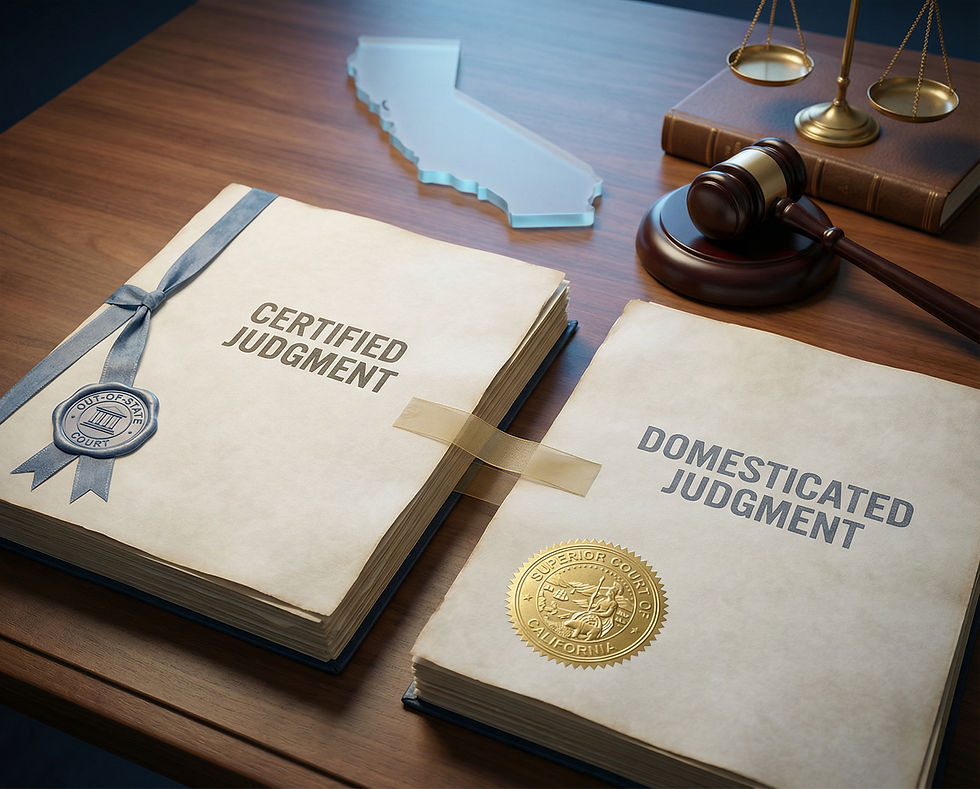Why Should You Have a Federally Registered Trademark?
- Yakup Sari, Esq.

- Jan 17, 2025
- 3 min read
Registering your trademark is a critical step in protecting your business’s intellectual property and ensuring long-term brand security. While common law rights provide some level of protection, a federal trademark registration offers significant advantages. Below, we explore the benefits of trademark registration, the differences between common law rights and registered trademarks, and why taking this step is vital for businesses of all sizes.

Benefits of Federal Trademark Registration
Public Notice: Registered trademarks are listed in the USPTO’s database, providing public notice to anyone searching for similar trademarks. This visibility helps deter others from using or registering a similar mark.
Legal Presumption of Ownership: Federal registration establishes a legal presumption that you own the trademark and have the exclusive right to use it in connection with the listed goods or services. This simplifies proving ownership in federal court.
Nationwide Rights: A federal registration grants exclusive rights to your trademark across the entire United States and its territories, unlike common law rights, which are geographically limited.
International Protection: You can use your federal registration as the basis for filing trademark applications in foreign countries through the Madrid Protocol, streamlining international trademark protection.
Customs Enforcement: You can record your trademark with U.S. Customs and Border Protection (CBP) to prevent the importation of infringing goods.
Use of the ® Symbol: The federal registration symbol (®) signifies that your trademark is registered with the USPTO, discouraging potential infringers.
Common Law Rights vs. Federal Registration: A Comparative Table
Aspect | Common Law Rights | Federal Trademark Registration |
Geographic Scope | Limited to areas where the trademark is actively used in commerce | Nationwide rights across the United States and territories |
Legal Presumption of Ownership | None; ownership must be proven with evidence | Presumed ownership with registration certificate |
Public Notice | Not included in USPTO database; requires independent search efforts | Listed in USPTO database, offering clear public notice |
International Protection | Not available | Can serve as a basis for international registration |
Customs Enforcement | Not applicable | Eligible for CBP protection against infringing imports |
Understanding Common Law Rights
Common law trademark rights arise automatically through the proper use of a trademark in commerce. These rights are limited to the geographic area where the trademark is actively marketed and sold. For example:
A business operating only in the Los Angeles metropolitan area will have trademark rights confined to that region.
Common law rights are insufficient if you plan to expand your business nationally or internationally, as others may acquire rights in areas you have not yet entered.
Key limitations of common law rights:
Geographic Restrictions: Competitors in other regions may use an identical or similar trademark without infringing.
Lack of Presumption: Ownership must be proven through extensive evidence.
Risk of Conflicts: Without a federal registration, you may face challenges if another business with common law rights preempts you in a new market.
Why Federal Registration is Essential
While common law rights provide basic protection, federal registration offers superior benefits, particularly for businesses with growth ambitions. Registering with the USPTO secures your rights nationwide and helps prevent conflicts that could arise as your business expands.
International Trademark Protection
Through the Madrid Protocol, you can file a single international application based on your U.S. registration to seek protection in over 100 member countries. However, each country’s trademark office will independently evaluate your application, and registration is not guaranteed.
Ensuring Long-Term Trademark Protection
Federal trademark registration can last indefinitely, provided you:
Continue to use the trademark in commerce.
File maintenance documents and fees at periodic intervals (e.g., after the first five years of registration).
Failure to meet these requirements will result in the cancellation of your registration, requiring you to restart the application process.
Why Legal Assistance Matters
Navigating the complexities of trademark registration, common law rights, and international protections requires expertise. At Sari Law Firm, attorney Yakup Sari and our experienced team specialize in guiding clients through every step of the trademark process—from initial applications to responding to office actions and securing international protections. Let us help ensure your trademark is safeguarded, allowing you to focus on building your business with confidence.
Contact Sari Law Firm today to protect your brand and secure your trademark rights.




Comments